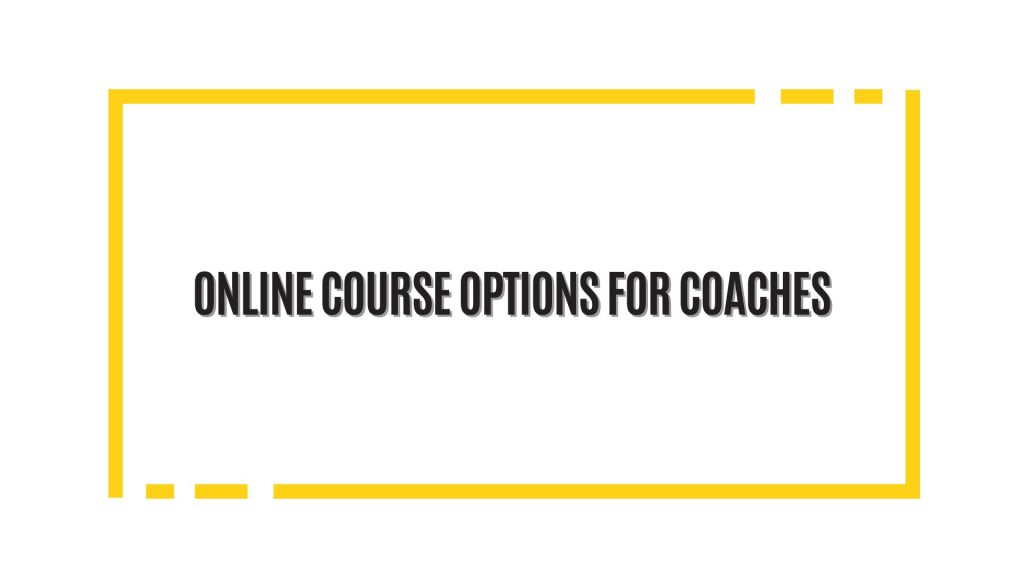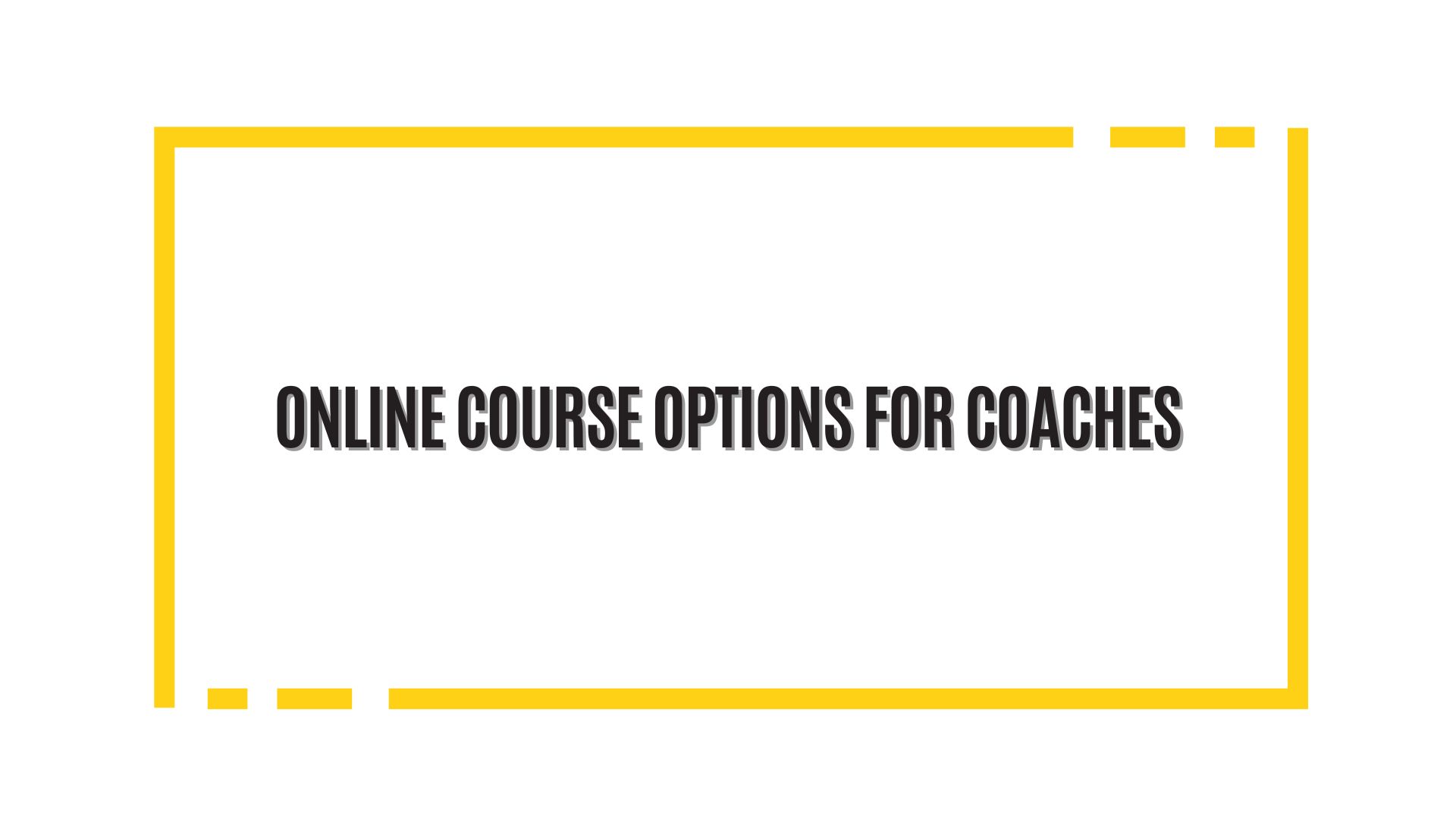I’ve held plenty of workshops on the importance of online course options for coaches and entrepreneurs and it’s something that’s really gathering interest. Today, so many people are realising their potential right now and the opportunities they can create from their own unique expertise. So how can you create your own online courses as a coach?
The great thing is that there’s so much variety and you can reach such a wide audience with the growth of online and distance learning. And no matter your area of expertise, you’re always in full control to create whatever course you want. Courses are so easily monetised and engaged with today – in fact, you’ve probably scrolled past a good few of them as ads in your social media feed.

Courses are an opportunity to increase your brand, your online presence and are a brilliant way to increase your income.
Online Course Option 1: Self Taught
A self-taught course simply means creating an online course that people can complete at their own pace at home.
Your course doesn’t have to be any size in particular. Very often they’re a pamphlet/booklet that you can download as a PDF and print out. They’re intended to be read through and completed at the client’s own pace. Or, of course, you can record something to send out via email across a number of weeks. Whatever works for you is fine.
The thing about these types of courses is that you have written something that costs nothing to reproduce – a digital asset. Something you can keep on selling. There are no overheads – it’s just there to bring you extra income in addition to your main coaching sessions.
Put in the initial work for course creation and you’ll reap the rewards long after (just check that everything is up to date in there regularly and update if you need to). And remember – you can always create another online course! Or add/change the one you’ve already built. They’re malleable and don’t have to be static. Be free, and develop your course/s as you do, too. Change up the format if you like, too.
It is a simple, easy way to make a small amount of extra money on the side. It might be a mindfulness course, a food course, a course on chakras and journaling. If it doesn’t need too much extra assistance or mentoring, then it’s perfect material for a self-taught course.
The caveat here is to make sure to offer assistance if your client is struggling (or just general mentorship should they need it throughout the course). Note that this is not as a teacher. You’re not teaching a class – that is a separate model altogether.
You don’t want to make it too hard to do on your own and you don’t want to be bombarded with emails. If this starts to happen, perhaps you have the opportunity to do the following option instead.
Online Course Option 2: Group Courses
If you want to offer a more structured, traditional way for your clients to learn from you, then this is a sturdy option. And it’s probably the most popular online course option for coaches out there.
The format of this type of course is normally a class once a week, with homework. Perhaps you’ll also include an online forum where students can interact, along with a Q&A, live or in blog format. It’s an excellent way to encourage social and peer learning. How you structure this type of course is totally up to you (and you’ve probably experienced plenty of different examples in courses you’ve attended too) but generally, it is the traditional model of a class taught in a group (online or offline).
Ideally, you want something that’s structured, allows communication between learners asynchronously (private Facebook groups or Slack groups are good for this) and provides them with regular communication via email or online meetings.
Course Option 3: Tiers/Memberships
This is akin to the Patreon model and isn’t another course option for coaches per se, but rather a mix of this with access to other materials, too.
In other words, you can provide access to certain selections of materials depending on the subscription type. If people like to support what you do financially, and also gain insight into the wisdom you can offer in exchange, then things like this are good incentives to potential clients.
For example, people like Kati Morton have Patreons with differing tiers and memberships. These offer insightful and guiding content in terms of mental health and managing it:, as shown below.
Think about how you could tier your offers and empower potential subscribers to make the right choice to suit them. People like having choice and flexibility, which is why tiering is so popular.
Online Course Option 4: Group Work
This is one of the most common formats in coaching. With the increase in online options since the pandemic, there has been significant growth in online courses and workshops when it comes to the coaching sector. These groups provide a sense of solidarity and safety for your course members.
As I’ve said before, if you’re working as a coach, you’re likely working in that area because you are drawn to helping people. You believe you have something to offer people to help them improve some aspect of their lives. Workshopping is a great environment for relationship building and creating connections – helping each other in our own individual journeys.
Learning to facilitate a space that is both a learning environment and a safe space where people can feel they can share is something that is truly valuable and so conducive to learning. Psychological safety matters, and an environment where people aren’t afraid to ask questions or have a go at something means they can ultimately flourish.
We can learn so much from each other. Harness that power through group learning.
Course Option 5: 1:1 Mentoring
1:1 mentoring is when you meet a client one on one whether this is in person or online for personal coaching.
Here, you work with your client on whatever it is that they bring up or bring to you that they want to work on. Personal coaching can be particularly rewarding and it gives you the opportunity for space and time with one person, allowing you to make a real difference in their lives.
If you want guidance on what’s best for you and your goals, I’m here to help. Get in touch and let’s start getting you on the path to creating amazing courses (and extra income!).


